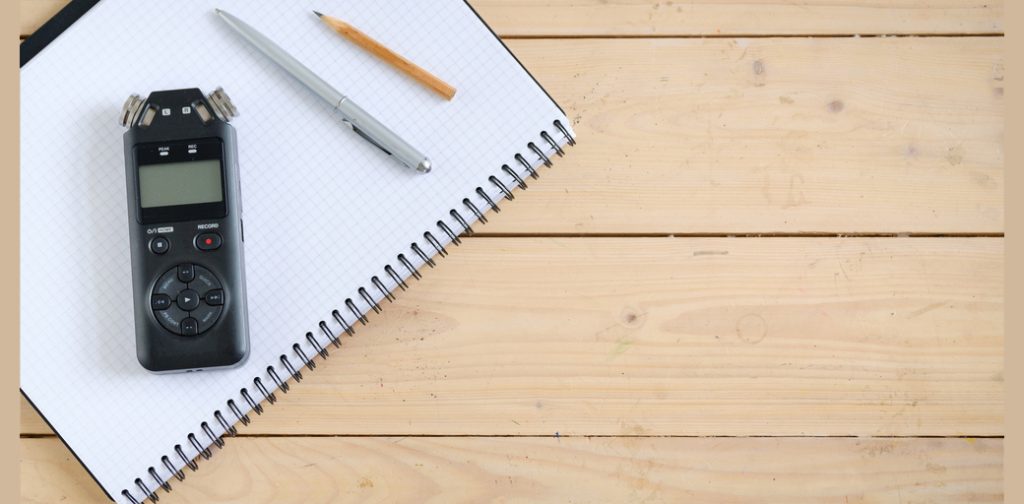Es gibt Dinge, die ohne Worte funktionieren. Gute Interviews gehören sicher nicht dazu.
Floskeln
Woher kommen die inhaltsleeren Sprachschnipsel, die wir als Füllwörter und Floskeln bezeichnen, in unserem Sprachgebrauch?
Es gibt Dinge, die ohne Worte funktionieren. Gute Interviews gehören sicher nicht dazu.

Es gibt Dinge, die ohne Worte funktionieren. Gute Interviews gehören sicher nicht dazu. Schließlich geht es bei dem zur Veröffentlichung bestimmten Dialog zwischen den Interviewpartnern darum, an die Leser eines Printmediums oder Online-Portals gerichtete Botschaften genau zu erläutern, das eigene Unternehmen positiv darzustellen und/oder sich als Meinungsführer zu positionieren. Jedes Interview hat dabei seine ganz individuellen Anforderungen. Maßgeblich für den Erfolg sind Fachkompetenz und eine gute Vorbereitung seitens des Interviewgebenden. Ferner sind vor dem Interview praktische Details zu klären, um einen ungestörten und effizienten Ablauf sicherzustellen. Etwa, ob der Journalist das Interview im persönlichen Gespräch oder per Telefon führen wird, welche Themenschwerpunkte behandelt und wie viel Zeit eingeplant werden soll.
Letztlich richtet sich das ausgearbeitete Interview an die Leser. Deshalb beginnt eine gute Vorbereitung damit, sich Gedanken über die für die Zielgruppe relevanten Informationen zu machen. Zudem gilt, je präziser die Vorbereitung, um so souveräner, authentischer und glaubwürdiger wirkt der Interviewte auf seinen Gesprächspartner. Anhand einer guten Vorbereitung lassen sich die individuellen Informationsziele vollständig und nachhaltig adressieren. Darüber hinaus besteht die Möglichkeit, sich vorab Fragen schicken zu lassen, um Antworten vorzubereiten. Allerdings heißt das nicht, dass im Laufe des Gespräches nicht auch andere Aspekte zur Sprache kommen können.
Während des Interviews sind die Rollen der Gesprächspartner klar definiert, wobei der Interviewte in der Regel mehr über das fragliche Thema weiß als der Journalist. Jedoch sollte der Befragte das Interview nicht als Überprüfung der eigenen Expertise verstehen. Überdies empfiehlt es sich, den Fokus während des Gesprächs auf die wesentlichen Fakten zu richten.
Perfekt vorbereitete und auswendig gelernte Sätze sind unterdessen oftmals eher hinderlich. Vielmehr geht es darum, das Interview möglichst wie eine normale Unterhaltung zu führen und Kernbotschaften in einfachen, nachvollziehbaren Sätzen zu erläutern, Fachjargon anschaulich zu erklären und Aussagen mit Beispielen zu untermauern. All dies hilft, Verständnisfehler zu vermeiden. Um sich ganz auf das Gespräch konzentrieren zu können, sind außerdem Notizen zu Zahlen und Fakten sachdienlich. Schließlich müssen die getroffenen Aussagen korrekt sein und einer Analyse seitens des Journalisten und der Leser standhalten. Und klar: Es sind nicht nur kurze Pausen während des Gesprächs erlaubt, auch Antworten auf offene Fragen können zeitnah nachgereicht werden.
Am Ende des Tages geht es bei einem erfolgreichen Interview also nicht darum, innerhalb kurzer Zeit möglichst alle Informationen rund um ein Thema unterzubringen. Fundierte Daten zu den wichtigsten Aspekten sind dagegen ein Garant für Qualität. Deshalb gilt: je präziser die Vorbereitung, umso souveräner lässt sich ein Interview geben. Im Übrigen lassen sich so auch verzwickte Fragen leichter beantworten.
In diesem Sinne viel Spaß bei der Vorbereitung zum nächsten Interview.
Woher kommen die inhaltsleeren Sprachschnipsel, die wir als Füllwörter und Floskeln bezeichnen, in unserem Sprachgebrauch?
Die Fachmedien wandeln sich – warum eigentlich?